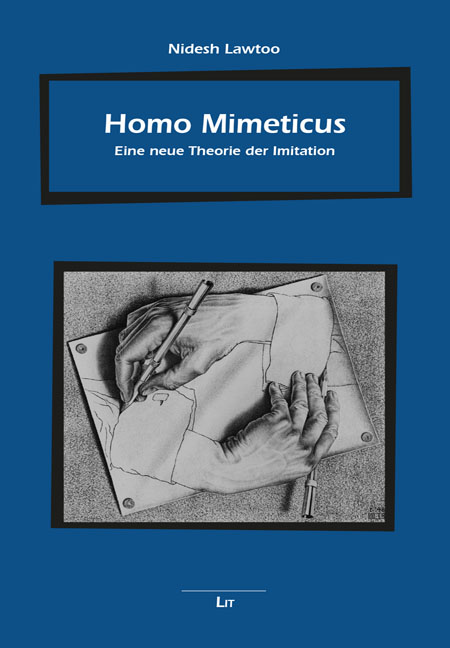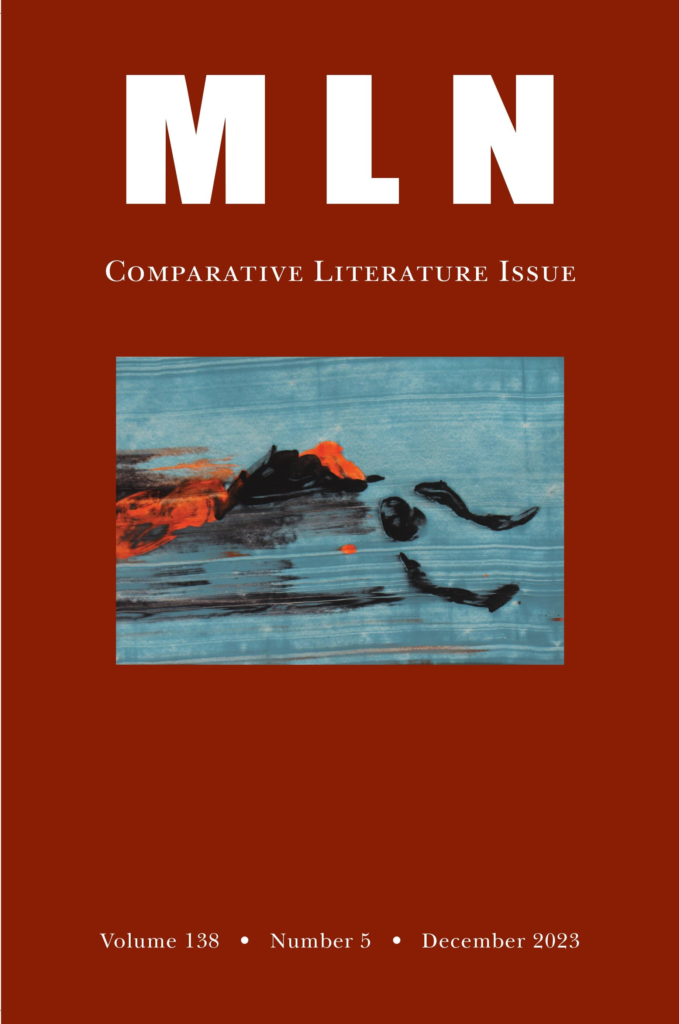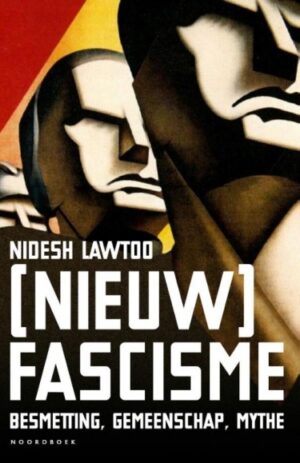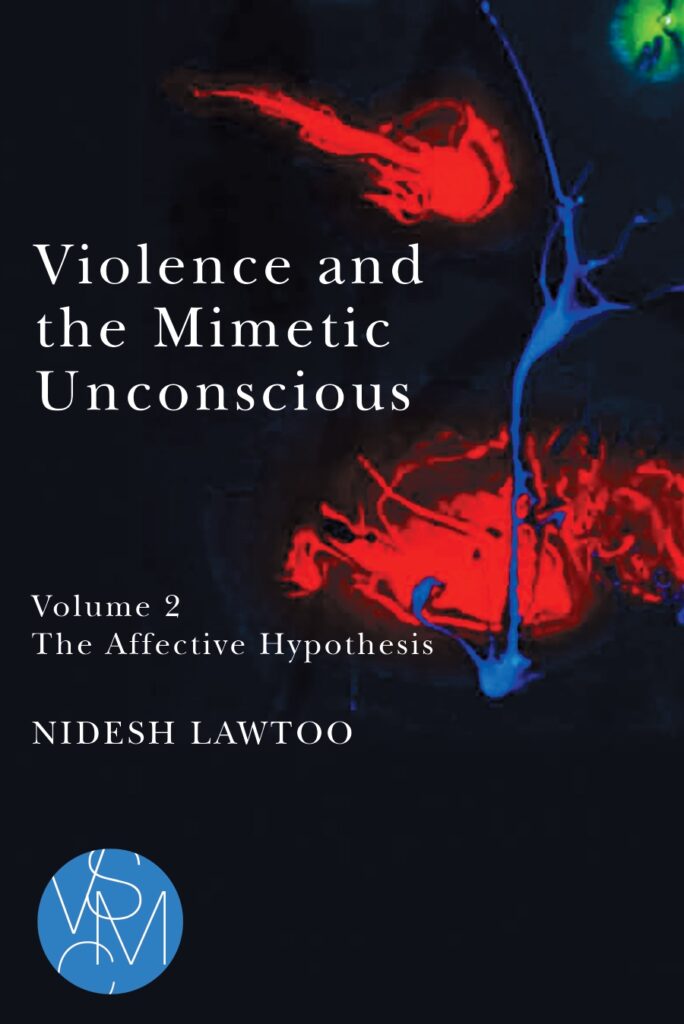
German translation available Open Access with Lit Verlag here.


German translation available Open Access with Lit Verlag here.

In this special issue of Modern Language Notes (Johns Hopkins UP) edited by Nidesh Lawtoo, contributors join literary and philosophical perspectives to further the interdisciplinary field of mimetic studies. After the linguistic and the affective turn, the new materialist and the performative turn, the cognitive and the posthuman turn, the issue argues for a re-turn to the ancient, yet also modern and still contemporary realization that humans are mimetic creatures, or homo mimeticus. Essays on Plato, Nietzsche, Wilde, Benjamin, Adorno, Borges, as well as on contemporary film and fiction, give theoretical and aesthetic substance to this claim. More information and OA articles available HERE.

Kunnen we ons immuun maken voor het (nieuwe) fascisme (Noordboek 2024)? Nidesh Lawtoo betwijfelt het. Onze rationaliteit is simpelweg niet opgewassen tegen de besmettelijkheid van de mythe. Of we het nu willen of niet: we praten elkaar na (mimesis). En nieuwe media versterken de fascistische boodschap. Toch is er hoop. We kunnen ons bewust worden van ons mimetische gedrag. Als we onszelf doorzien, wordt het mogelijk om de mythe anders te framen en de angel eruit te trekken. Interviews in Trouw & Mare.
In order to bring the Homo Mimeticus project to an end and launch the field of mimetic studies, Nidesh Lawtoo (prof. at Leiden University) re-turns to the place where theories of mimesis began. Shot on the Acropolis in Athens, Greece, ep. 1 recalls that philo-sophia, or love of wisdom, is born out of a mimetic agon with a mythic wisdom that found in Athena a primary source of inspiration
In this discussion on the topic of “The Art of Imitation and the Desire for Violence: The Rebirth of Homo Mimeticus,” we have tried to grasp the emerging concepts around mimesis, new age violence, and the return of the homo mimeticus.

Representations of violence have subliminal contagious effects, but what kind of unconscious captures this imperceptible affective dynamic in the digital age? In volume two of a Janus-faced diagnostic on violence and the unconscious, HOM PI Nidesh Lawtoo traces a genealogy of a long-neglected, embodied, relational, and highly mimetic unconscious central to the problematic of (new) media violence. Now OUT with MSU P!
In this second episode of HOM Videos on The Neuroscience of Mimesis, Vittorio Gallese discusses with Nidesh Lawtoo important precursors of the discovery of mirror neurons in aesthetics, phenomenology and the tradition of the mimetic unconscious: from Nietzsche to Lipps, Merleau-Ponty to Aby Warburg, Charles Féré to Pierre Janet, a number of fin-de-siecle philosophical physicians were sensitive to the mirroring relation between movement and sensation later confirmed by the discovery of mirror neurons.
In this book launch of a diptych on Violence and the Unconscious, Nidesh Lawtoo, Marina Garcia-Granero and William Johnsen present the latest output of the ERC project Homo Mimeticus. Rather than entering the debate on media violence from a quantitative perspective, the book retraces the genealogy of the concept of catharsis that still informs, or misinform the popular imagination. The launch contextualizes the book within mimetic studies and discusses key thinkers of violence and the unconscious, from Aristotle to Nietzsche, Freud to Girard, among others. More information here: https://msupress.org/9781628964851/vi…

In this chapter based on the Raymond Schwager Lecture Nidesh Lawtoo delivered at the University of Innsbruck in 2019, he revisits his work on (new) fascism from the angle of the patho-logies of exclusions that turn mimesis into pathological scapegoating mechanism directed against minorities and immigrants. Chapter available HERE.
What’s in a voice? And if the echoes a voice generates are neither
singular nor plural but singular plural, what shared voices are at play in
Jean-Luc Nancy’s untimely reflections on the affective participation, or
methexis, animating the agonistic confrontation between philosophy and
literature? Part of a dazzling collection of essays thinking with Nancy, in this chapter Nidesh Lawtoo reveals the partage des voix internal Lacoue-Nancy. Chapter available HERE.